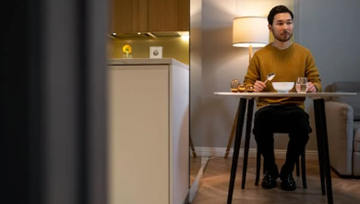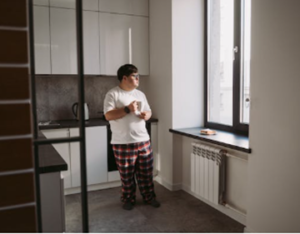 COVID-19 itself can surpass our mental wellness, but the social problems resulting from the pandemic likewise have negative repercussions. Economic problems, the media’s heavy concentrate on COVID-related topics, lowered social get in touch with and residential physical violence are simply some of the aspects that can have a result on us. A number of research studies have shown that psychological health has declined during the pandemic.
COVID-19 itself can surpass our mental wellness, but the social problems resulting from the pandemic likewise have negative repercussions. Economic problems, the media’s heavy concentrate on COVID-related topics, lowered social get in touch with and residential physical violence are simply some of the aspects that can have a result on us. A number of research studies have shown that psychological health has declined during the pandemic.
The same is suggested by our current research, which analyzes just how the citizens of every one of Europe handled the fragments in the initial half of 2020. The closure struck hard. We discovered concretely that the aggravating frame of mind is connected to boosted solitude. The decline in mental health standing is not secure, however influenced by the social action (lockdown, restrictions, reopening, and so forth). In Denmark, for example, the mental wellness problem aggravated during the lockdown during the first wave of the epidemic, however it boosted once again as the federal government gradually resumed the neighborhood. COVID-19 corona disease pollution Søren Kierkegaard psychology analysis system DSM-V Ulrich Bech self stress and anxiety concern family members seclusion episode global spread vaccination therapy
Corona isolation evaluates our existential state; Weakening mental wellness
This makes our searchings for very relevant. Faced with a huge boost in the variety of COVID-19 cases, many governments in Europe have actually reestablished various constraints, lockdowns, quarantine rules, along with social distancing injunctions in an effort to include the infection. It will likely have a result on just how lonely we feel– and consequently, on our psychological health also. Weakening mental wellness. In our research, we looked at people aged 50 and over from 26 European nations. We utilized information gathered in connection with a large recurring research called the Survey of Wellness, Ageing and Retirement in Europe. The details was collected through telephone-based meetings in between June and august 2020. A total of 50,609 individuals participated in the research study.

Specifically, we focused on the degree to which participants had actually experienced loneliness and worsened mental illness (depression, anxiety symptoms, sleep problems), in addition to the connection between them. We discovered that: Ad: About 30 percent of participants reported dejection. A similar percent reported anxiety symptoms and sleep troubles. 64 percent of participants that experienced clinical depression and 73 of respondents who experienced anxiousness signs and symptoms reported that signs had aggravated during the pandemic. 35 percent of those surveyed with trouble sleeping reported that the problems with resting had worsened. Simply put, the quantity of information indicates that the pandemic has actually caused weakening psychological wellness in Europe.
Raising loneliness; Factor for positive outlook
 We located that for numerous, isolation was a vital component of this aggravation. 29 percent of the individuals reported sensation lonely, and amongst them, 40 percent reported feeling extra lonely given that the beginning of the outbreak compared to previously. This trend was not just obvious amongst the older component of the population that we evaluated. Various other recent studies utilizing data from EU nations, northern and Western European countries, the UK and the US paper a comparable boost in isolation and psychological health problems amongst young people and even trainees (that are not generally thought about to be in jeopardy of isolation). Factor for positive outlook. While our searchings for might seem preventing, there is factor to optimism– and there are methods we can move on. Not every one of those evaluated reported really feeling a lot more lonesome since the pandemic started. Over half of the respondents (57 percent) reported that they felt neither extra neither much less lonesome, and a tiny percentage (3 percent) reported that they really felt much less lonely. Advertisement: A significant percentage of respondents that reported mental health issue reported that their symptoms have actually not boosted or worsened given that the start of the episode (34 percent for anxiety, 27 percent for stress and anxiety signs, 69 percent for rest troubles). A small proportion (concerning 2 percent of participants who reported the previously mentioned psychological health issue) reported a reduction in symptoms.
We located that for numerous, isolation was a vital component of this aggravation. 29 percent of the individuals reported sensation lonely, and amongst them, 40 percent reported feeling extra lonely given that the beginning of the outbreak compared to previously. This trend was not just obvious amongst the older component of the population that we evaluated. Various other recent studies utilizing data from EU nations, northern and Western European countries, the UK and the US paper a comparable boost in isolation and psychological health problems amongst young people and even trainees (that are not generally thought about to be in jeopardy of isolation). Factor for positive outlook. While our searchings for might seem preventing, there is factor to optimism– and there are methods we can move on. Not every one of those evaluated reported really feeling a lot more lonesome since the pandemic started. Over half of the respondents (57 percent) reported that they felt neither extra neither much less lonesome, and a tiny percentage (3 percent) reported that they really felt much less lonely. Advertisement: A significant percentage of respondents that reported mental health issue reported that their symptoms have actually not boosted or worsened given that the start of the episode (34 percent for anxiety, 27 percent for stress and anxiety signs, 69 percent for rest troubles). A small proportion (concerning 2 percent of participants who reported the previously mentioned psychological health issue) reported a reduction in symptoms.



